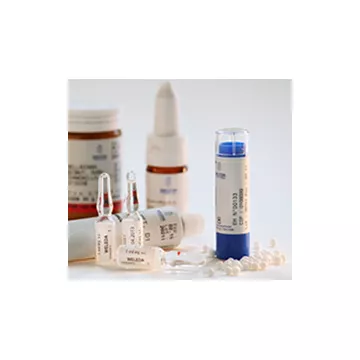
What are the common causes of poor appetite?
Lack of appetite, or anorexia, can be caused by a multitude of factors. Among the most common are medical conditions such as infections, inflammatory diseases, hormonal disorders, and chronic diseases such as diabetes or kidney disease. Psychological factors, such as stress, anxiety or depression, also play a crucial role. In addition, certain drugs and treatments, such as chemotherapy, are known to reduce appetite.
How can we stimulate appetite naturally?
To stimulate appetite, it's advisable to adopt a regular eating routine, planning meals and snacks at set times each day. Incorporating visually appealing, nutrient-rich foods can also help. Regular moderate physical activity is another effective method of increasing appetite, as it stimulates the metabolism.
When should I consult a doctor about a lack of appetite?
It's important to consult a healthcare professional if lack of appetite persists for more than a few days, or if it's accompanied by other worrying symptoms, such as weight loss, fatigue or pain. A doctor will be able to assess the underlying causes and propose an appropriate treatment.
What medical treatments are available for lack of appetite?
Treatment for lack of appetite depends on the cause. If an underlying medical condition is identified, treating that condition can help restore appetite. In some cases, appetite-stimulating drugs or dietary supplements may be prescribed by a healthcare professional. It is crucial to follow medical recommendations for effective management.
How can lifestyle changes help manage poor appetite?
Adopting a healthy lifestyle is essential to managing poor appetite. This includes a balanced diet rich in fruit and vegetables, quality proteins and whole grains. Reducing consumption of processed foods and increasing hydration can also be beneficial. It is also advisable to reduce stress through relaxation techniques and adequate sleep.
What foods help stimulate the appetite?
Certain foods can help stimulate the appetite in a natural way. Foods rich in flavor and color, such as red fruits, citrus fruits and green vegetables, are not only attractive but also stimulate the taste buds. Mild spices such as cinnamon, nutmeg and ginger can also stimulate the appetite by increasing the sensation of hunger.
Are there any effective natural remedies for lack of appetite?
Several natural remedies can be used to stimulate appetite. Ginger tea, known for its gastrointestinal properties, can help boost appetite. Similarly, fenugreek, in seed or tea form, is renowned for its positive effects on appetite and digestion.
How does hydration influence appetite?
Good hydration is crucial to maintaining the body's equilibrium and can affect appetite. Drinking enough water helps maintain normal bodily functions and can even stimulate the appetite. However, it is important not to consume too many liquids before meals, as this can reduce the feeling of hunger.
What role does sleep play in regulating appetite?
Sleep has a direct impact on the hormones that regulate appetite, notably leptin and ghrelin. Insufficient sleep can disrupt these hormones, leading to a reduction in appetite or, conversely, an increase in cravings. Ensuring a regular and sufficient sleep cycle is therefore essential to maintain a normal appetite.
What are the signs that a lack of appetite is linked to a more serious health problem?
If lack of appetite is accompanied by symptoms such as significant weight loss, persistent weakness, abdominal pain, jaundice or changes in bowel habits, it's crucial to consult a doctor. These signs may indicate more serious conditions such as thyroid disorders, infections or liver disease that require immediate medical attention.